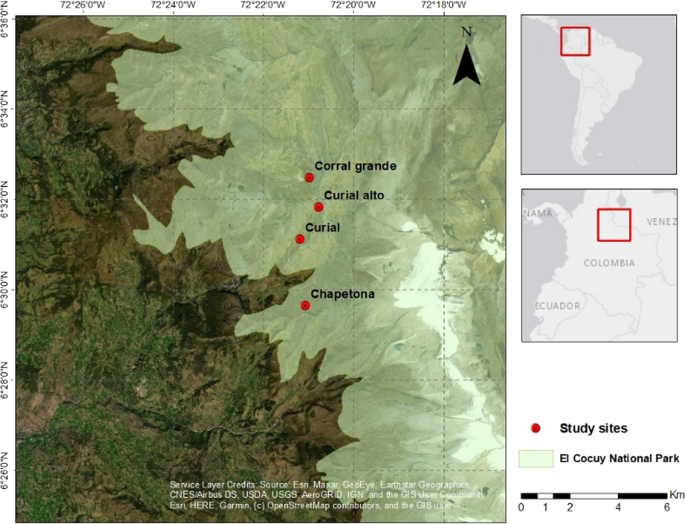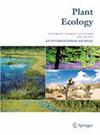Carbon balance shift in mountain peatlands along a gradient of grazing disturbance in the tropical Andes (Colombia)
IF 1.7
4区 环境科学与生态学
Q3 ECOLOGY
引用次数: 0
Abstract
Abstract High-elevation cushion peatlands are typical ecosystems of the Andes above 4000 m of altitude, with an important role in hydrology and global carbon sequestration. In Tropical Andean context, grazing livestock is one of the main threats to cushion peatlands, altering the vegetation and the storage carbon function. The aim of this research is to understand how grazing influences cushion peatland functioning by identifying ecological thresholds for carbon balance process. The study was carried out in four Andean peatlands in the northern part of Colombian Andes during 2019–2020. We established 30 plots of 1 m 2 where water table level, vegetation cover, and grazing disturbance were monitored. We also measured CO 2 fluxes using an infrared gas analyzer connected to a closed static chamber, which registered net ecosystem exchange and respiration data. Considerable variation in the conservation status of Distichia muscoides cushions was found within the sampled peatlands, reflecting an heterogeneous signal of grazing disturbance that is evident at the plot-specific scale. Decreasing water table level was related with changes in dominant vegetation, from compact cushion species to grasses proliferation, exacerbating disturbance effects and carbon emissions. Mixed-effects logistic regression models showed a carbon balance shift, from CO 2 sink to net emitter, in plots with high disturbance intensity and low D. muscoides cover. This study provides information for a better understanding of mountain peatlands functioning in the Tropical Andes and underlines the key role of D. muscoides cushions and the water table in carbon balance shift.

热带安第斯山脉山地泥炭地沿放牧干扰梯度的碳平衡变化(哥伦比亚)
高海拔缓冲泥炭地是海拔4000 m以上安第斯山脉典型的生态系统,在水文和全球固碳方面具有重要作用。在热带安第斯地区,放牧牲畜是缓冲泥炭地的主要威胁之一,改变了植被和储存碳的功能。本研究的目的是通过确定碳平衡过程的生态阈值来了解放牧如何影响缓冲泥炭地的功能。该研究于2019-2020年在哥伦比亚安第斯山脉北部的四个安第斯泥炭地进行。我们建立了30个面积为1 m2的样地,监测了地下水位、植被覆盖和放牧干扰。我们还使用连接到封闭静态室的红外气体分析仪测量了CO 2通量,记录了净生态系统交换和呼吸数据。在泥炭地样本中发现了相当大的差异,反映了放牧干扰的异质性信号,在特定的样地尺度上是明显的。地下水位的下降与优势植被的变化有关,从紧凑的垫层物种到草的增殖,干扰效应加剧和碳排放。混合效应logistic回归模型显示,在高干扰强度和低沙蝇覆盖的样地,碳平衡由co2汇向净排放转变。该研究为更好地理解热带安第斯山脉山地泥炭地的功能提供了信息,并强调了泥蚶垫层和地下水位在碳平衡转移中的关键作用。
本文章由计算机程序翻译,如有差异,请以英文原文为准。
求助全文
约1分钟内获得全文
求助全文
来源期刊

Plant Ecology
环境科学-林学
CiteScore
3.40
自引率
0.00%
发文量
58
审稿时长
8.6 months
期刊介绍:
Plant Ecology publishes original scientific papers that report and interpret the findings of pure and applied research into the ecology of vascular plants in terrestrial and wetland ecosystems. Empirical, experimental, theoretical and review papers reporting on ecophysiology, population, community, ecosystem, landscape, molecular and historical ecology are within the scope of the journal.
 求助内容:
求助内容: 应助结果提醒方式:
应助结果提醒方式:


